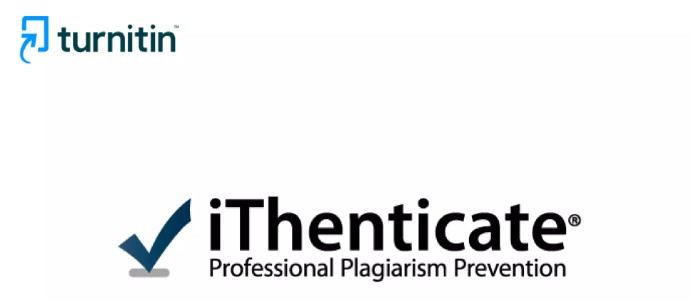Development of Problem-Based Learning (PBL) Oriented E-Module to Improve Critical Thinking Skills for Elementary School Students
DOI:
https://doi.org/10.36709/jpm.v16i1.249Keywords:
critical thinking skills, e-module, pblAbstract
The purpose of this study is to analyze the development procedure, validity and effectiveness of PBL-oriented e-module to improve critical thinking skills in fractional calculation operation materials for grade V elementary school students. The type of research method carried out is research and development (R&D) with its development procedure, namely ADDIE, and data collection techniques in the form of teacher and student observation sheets, questionnaires for the validation of material experts, media and learning, teacher and student response questionnaires, and knowledge tests. The results of this study are: (1) the procedure for developing PBL-oriented e-modules using the ADDIE stage, (2) the results of the assessment by material, media and learning experts stated that PBL-oriented e-modules are in the category of Good or Suitable for use with an average percentage of 77.7%, (3) PBL-oriented e-modules are effective in improving the critical thinking skills of grade V elementary school students. It can be seen from the average score of students' critical thinking skills between pretest and posttest as well as the experimental group with the control group according to the target, there is a significant difference (0.000 < 0.05
References
Anderson, L. W., & Krathwohl, D. R. (2001). A Taxonomy for Learning, Teaching and Assessing: A Revision of Bloom’s Taxonomy of Educational Objectives: Complete Edition. Longman.
Anugeraheni, I. (2018). Meta Analysis of Problem Based Learning Learning Model in Improving Critical Thinking Skills in Elementary School. A Journal Of Language, Literature, Culture, And Education Polyglot, 14(1), 9-16. https://doi.org/10.19166/pji.v14i1.789
Asri. (2024). Development of Problem-Based Learning-Based Science E-Module to Improve Critical Thinking Skills of Elementary School Students. Scientific Journal of Basic Education, 9(3).
Buchori, A., & Rahmawati, N. D. (2017). Development of Geometry E-Module with a Realistic Mathematical Approach in Elementary School. Elementary School: A Study of Educational Theory and Practice, 26(1), 23–29.
Budiarti, A. Nuswowati, M., & Cahyono, E. (2016). Guided Inquiry Assisted by E-Module to Improve Critical Thinking Skills. Journal of Innovative Science Education, 5(2).
Darmawati, Y., & Mustadi, A. (2023). The Effect of Problem-Based Learning on the Critical Thinking Skills of Elementary School Students. Jurnal Prima Edukasia, 11(2), 142–151. https://doi.org/10.21831/jpe.v11i2.55620
Fajari, L. E. W. (2021). Critical Thinking Skills And Their Impacts On Elementary School Students. Malaysian Journal of Learning and Instruction, 18. https://doi.org/10.32890/mjli2021.18.2.6
Feriyanti, N. (2019). Development of Mathematics E-Module for Elementary School Students. Journal of Technology and Learning, 6(1).
Huda, M. (2016). Teaching and Learning Models. Student Library.
Kruse, K. (2002). Introduction to instructional design and the ADDIE model. Retrieved from https://journals.sagepub.com/doi/10.1177/1523422306292942
Mahmudah, S., Kirana, T., & Rahayu, Y. (2022). Profil Kemampuan Berpikir Kritis Siswa: Penerapan E-Modul Berbasis Problem-Based Learning. IJORER : International Journal of Recent Educational Research, 3(4), 478-488. https://doi.org/10.46245/ijorer.v3i4.231
Maulina, A. R. dan D. Y. dan P. dan D. (2022). Analisis e-modul untuk pembelajaran berbasis masalah dengan fokus pada pengembangan keterampilan berpikir kritis siswa. Asian Journal of Educational Technology, 1(3). https://doi.org/10.53402/ajet.v1i3.38
Miftakhurrohmah, N. L., Masykuri, M., Ariyani, S. R. D. A., & Noris, M. N. (2023). The Effect of Guided Inquiry-Based Excretion System E-Module to Improve Critical Thinking and ICT Literacy Skills for Students. Jurnal Penelitian Pendidikan IPA, 9(2), 681–689. https://doi.org/10.29303/jppipa.v9i2.2036
Nieveen, N. (1999). Prototyping to Reach Product Quality. University of Twente.
Noer, E. N. dan U. R. dan A. (2020). Implementasi Material-Based Inquiry untuk Meningkatkan Kemampuan Berpikir Kritis Siswa Sekolah Menengah Atas. 4, 748–757. https://doi.org/10.31258/jes.4.4.p.748-757
Peterson, C. (2003). Bringing ADDIE to Life: Instructional Design in Its Best. Journal of Educational Multimedia and Hypermedia, 12, 227–241.
Rahayu, T. (2022). Penerapan Pembelajaran Model Inkuiri Terbimbing Berbasis Blended Learning Untuk Meningkatkan Hasil Belajar PKn Siswa Materi Kegiatan Sehari-hari. Economic Education and Entrepreneurship Journal, 5(2), 285-294. http://dx.doi.org/10.23960/E3J/v5i2.285-294
Rahmadina, Asmar, A., Yerizon., & Syarifuddin, H. (2022). Improving Students’ Critical and Mathematical Creative Thinking Skills Through the Development of Problem Based Learning (PBL)-Based E-Modules. International Journal of Progressive Sciences and Technologies (IJPSAT), 36(1), 116-126.
Resnick, L. B., & Resnick, D. P. (1992). Assessing the thinking curriculum: New tools for educational reform. Dalam Changing assessments: Alternative views of aptitude, achievement and instruction). Kluwer Academic/Plenum Publishers.
Saragih, P., & Herlina, L. (2023). Meningkatkan Keterampilan Penyelesaian Masalah Sosial Siswa Melalui Penerapan Model Pembelajaran Inkuiri di Kelas V SDN 091631 Pematang Kerasan. Journal on Education, 6(1), 8670- 8676.
Setiawan, F., Masitoh, S., & Mariono, A. (2023). The PBL-STS Model for Achieving Critical Thinking Skills in Elementary School Students. International Journal of Social Learning (IJSL), 3(3), 293–307. https://doi.org/10.47134/ijsl.v3i3.193
Suharyat, Y., Ichsan, Supriyadi, A., Santosa, T. A., & Sofianora, A. (2023). Meta-analysis Study: The Effect of the Independent Curriculum Integrated Project Based Learning Model on Student Learning Outcomes in Natural Science Materials. LITERACY : International Scientific Journals Of Social, Education and Humaniora, 2(1), 19-33
Suparman, S. A. K. (2020). Desain E-Module Berbasis Model Pembelajaran PBL Matematika Untuk Meningkatkan Keterampilan Berpikir Kreatif.
Susanti, P. (2022). The Effectiveness Of Realistic Mathematics Education Learning Approach On Critical Thinking Skills Of Elementary School Students. ANARGYA: Jurnal Ilmiah Pendidikan Matematika, 5(2), 197–205. https://doi.org/10.24176/anargya.v5i2.8308
Triswahyono, S., Sukartiningsih, W., & -, H. (2019). Improving Critical Thinking of Elementary School Students Using Problem-Based Learning Models. International Journal of Scientific and Research Publications (IJSRP), 9(3), p8716. https://doi.org/10.29322/IJSRP.9.03.2019.p8716
Downloads
Published
How to Cite
Issue
Section
License
Copyright (c) 2025 Eka Yudha Ardiyanto Anto, Nunuk Suryani, Ucu Rahayu

This work is licensed under a Creative Commons Attribution 4.0 International License.







